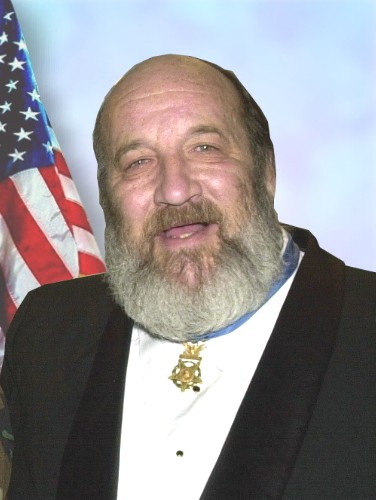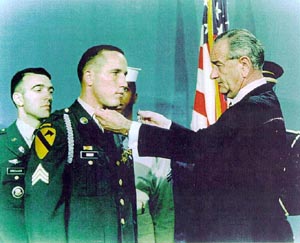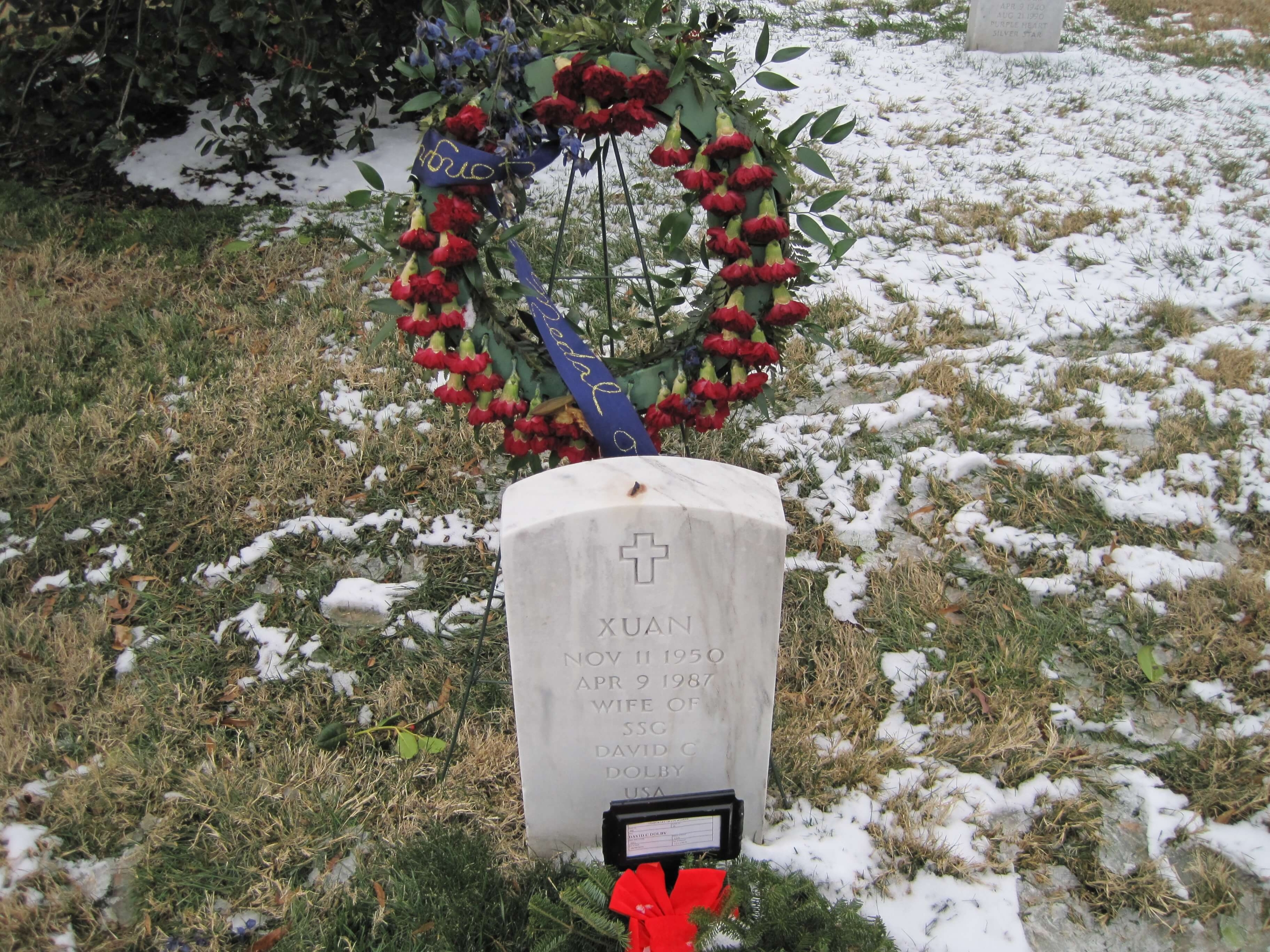Medal of Honor recipient David C. Dolby dies at 64; had troubled post-military career
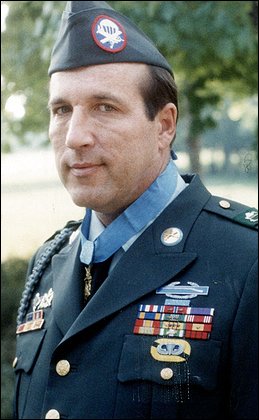
By T. Rees Shapiro
Courtesy of The Washington Post
Friday, August 13, 2010
David C. Dolby, 64, who received the Medal of Honor for saving his Army platoon in Vietnam but had a troubled post-military career that included a conviction for cashing fraudulent checks, died August 6, 2010, in Spirit Lake, Idaho. He lived in Royersford, Pennsylvania.
His brother, Daniel Dolby, said Mr. Dolby had been visiting fellow Vietnam veterans in Idaho, but he did not know the cause of death.
Mr. Dolby — “Mad Dog,” as he was known to his Army comrades — was a solid 6-footer who wrestled and played football in high school. He enlisted in the Army at 18 and became an Army Ranger and a member of the Green Berets. He was known to scout the jungle ahead of the other men, toting his heavy M60 machine gun like a rifle.
On May 21, 1966, then-Specialist 4th Class Dolby was in the middle of his first tour in Vietnam. He was part of a 1st Cavalry Division platoon on a mission near An Khe when the men walked into an ambush.
Six soldiers were immediately killed by machine-gun fire.
Several others were wounded, including the platoon’s officer, Second Lieutenant Robert H. Crum Jr. Within an hour of the ambush’s first shots, the lieutenant, drenched in blood from bullet wounds, sat against a tree and relinquished command of his men to Specialist Dolby.
In Brigadier General S.L.A. Marshall’s 1967 book about Vietnam, “Battles in the Monsoon,” an entire chapter is dedicated to Specialist Dolby’s rescue efforts. Marshall said Spec. Dolby was “one of the rarest of warriors — a man with keen imagination who at the same time, when under fire, seems to be wholly without fear.”
While fully exposed to enemy fire, Specialist Dolby launched his own assault on the enemy machine gun bunkers until he’d expended all of his ammunition.
“I prayed in the beginning and then I didn’t have time to pray,” Specialist Dolby later said of the action on the ridge that day, noting that “bullets were going by — under my arms, between my legs, past my head.”
After reloading, he single-handedly killed three enemy machine gunners, according to his Medal of Honor citation. Spotting a wounded comrade, Specialist Dolby picked the man up and carried him over his shoulder to safety for medical treatment. He then crawled through gunfire to within 50 meters of the enemy positions, which were concealed within the ridge by camouflage mats covered with jungle fronds. He lobbed several smoke grenades at the face of the bunkers to mark them for air strikes.
After a four-hour battle, Spec. Dolby organized the withdrawal of his troops while artillery fire and air strikes obliterated the Vietcong redoubt. The platoon lost eight men, and 14 were wounded, including Sergeant Alonzo Peoples.
“The bravest man I ever knew, maybe the bravest that ever lived,” Peoples later called Specialist Dolby. “He saved all of us.”
An Army report counted 55 dead enemies on the ridge and estimated that 100 others were killed or wounded. On September 28, 1967, Mr. Dolby — who had been promoted to sergeant — received the Medal of Honor from President Lyndon B. Johnson in a White House ceremony.
In a highly unusual turn of events, Mr. Dolby served four more tours in Vietnam after receiving the country’s highest award for valor. He said of his continuous service, “If I’m going to be in the Army, I’d rather be in Vietnam where the actions is. I feel I can be of more help to my fellow men there.”
His other military decorations included the Silver Star, three awards of the Bronze Star Medal and the Purple Heart.
Mr. Dolby’s life after receiving the Medal of Honor was marked by controversy. In 1969, he was arrested for possession of marijuana and for participating in a brawl in Vietnam. He was fined $342 and reduced a grade in rank. He left the Army in 1971 as a Staff Sergeant. He later worked in a tire factory and a steel mill and was a painting contractor with his brother.
In 1974, Mr. Dolby was arrested by FBI agents for cashing at least 58 fraudulent checks under assumed names and worth between $8 and $500 during a trip to Hawaii. He pleaded guilty to cashing $1,200 in bad checks and was placed on three years’ probation.
Upon receiving his sentence, Mr. Dolby told the court: “I’m sorry to say I made such a poor and incredible decision at the time.”
David Charles Dolby was born May 14, 1946, in Norristown, Pennsylvania. His father was a personnel manager at a BFGoodrich tire plant and had been a prisoner of war during World War II.
His wife, Xuan Dolby, whom he met in Vietnam, died in 1987. Besides his brother of Coventryville, Pa., he is survived by his mother, Mary Dolby of Laureldale, Pennsylvania.
“Look, we’re all equal,” Mr. Dolby once said of Medal of Honor recipients. “We all did things that, if we had chosen not to do, nobody would have said we should have done. We all had that one moment in our lives. Other than that, we’re just normal people.”
David Charles Dolby (May 14, 1946 – August 6, 2010) was a United States Army soldier who received the U.S. military’s highest decoration, the Medal of Honor, for his actions in the Vietnam War.
Dolby was born on May 14, 1946, in Norristown, Pennsylvania. His father, Charles L. Dolby, was a personnel manager for B.F. Goodrich Company in Oaks, Pennsylvania. He had a younger brother, Daniel.
Dolby joined the Army from Philadelphia and by May 21, 1966, was serving in the Republic of Vietnam as a Specialist Dour with Company B, 1st Battalion (Airborne), 8th Cavalry Regiment, 1st Cavalry Division (Airmobile). On that day, his platoon came under heavy fire which killed six soldiers and wounded a number of others, including the platoon leader. Throughout the ensuing four-hour battle, Dolby led his platoon in its defense, organized the extraction of the wounded, and directed artillery fire despite close-range attacks from enemy snipers and automatic weapons. He single-handedly attacked the hostile positions and silenced three machine guns, allowing a friendly force to execute a flank attack.
Dolby was subsequently promoted to Sergeant and awarded the Medal of Honor for his actions during the battle. The medal was formally presented to him by President Lyndon B. Johnson on September 28, 1967.
In addition to the 1965–66 tour in which he earned the Medal of Honor, Dolby was deployed four more times to Vietnam. In 1967 he served there with the 101st Airborne Division, in 1969 with the 75th Ranger Regiment, 173rd Airborne Brigade, in 1970 as an advisor to the Vietnamese Rangers, and in 1971 as an advisor to the Royal Cambodian Army.
Dolby married but had no children. After his wife Xuan’s death around 1987, he lived quietly in southeastern Pennsylvania. Over the last 20 years, Dolby attended many veterans events around the U.S. and once opened the New York Stock Exchange on Veterans Day. He most recently worked to bring attention to the neglected Medal of Honor Grove at the Freedoms Foundation in Valley Forge, Pennsylvania.
Dolby died at age 64 on the morning of August 6, 2010, while visiting Spirit Lake, Idaho, for a veterans’ gathering. The cause of death has not been announced, and funeral arrangements at Arlington National Cemetery are pending. His brother, Dan, stated that Dolby died in his sleep.
Dolby’s official citation reads:
For conspicuous gallantry and intrepidity at the risk of life above and beyond the call of duty, when his platoon, while advancing tactically, suddenly came under intense fire from the enemy located on a ridge immediately to the front. Six members of the platoon were killed instantly and a number were wounded, including the platoon leader. Sergeant Dolby’s every move brought fire from the enemy. However, aware that the platoon leader was critically wounded, and that the platoon was in a precarious situation, Sergeant Dolby moved the wounded men to safety and deployed the remainder of the platoon to engage the enemy. Subsequently, his dying platoon leader ordered Sergeant Dolby to withdraw the forward elements to rejoin the platoon. Despite the continuing intense enemy fire and with utter disregard for his own safety, Sergeant Dolby positioned able-bodied men to cover the withdrawal of the forward elements, assisted the wounded to the new position, and he, alone, attacked enemy positions until his ammunition was expended. Replenishing his ammunition, he returned to the area of most intense action, single-handedly killed 3 enemy machine gunners and neutralized the enemy fire, thus enabling friendly elements on the flank to advance on the enemy redoubt. He defied the enemy fire to personally carry a seriously wounded soldier to safety where he could be treated and, returning to the forward area, he crawled through withering fire to within 50 meters of the enemy bunkers and threw smoke grenades to mark them for air strikes. Although repeatedly under fire at close range from enemy snipers and automatic weapons, Sergeant Dolby directed artillery fire on the enemy and succeeded in silencing several enemy weapons. He remained in his exposed location until his comrades had displaced to more secure positions. His actions of unsurpassed valor during 4 hours of intense combat were a source of inspiration to his entire company, contributed significantly to the success of the overall assault on the enemy position, and were directly responsible for saving the lives of a number of his fellow soldiers. Sergeeant Dolby’s heroism was in the highest tradition of the U.S. Army.
This American hero will be laid to rest with full military honors in Arlington National Cemetery at a date to be announced.
DOLBY, DAVID C
- SSG US ARMY
- VIETNAM
- DATE OF BIRTH: 05/14/1946
- DATE OF DEATH: 08/06/2010
- BURIED AT: SECTION 59 SITE 498
- ARLINGTON NATIONAL CEMETERY
DOLBY, XUAN
- DATE OF BIRTH: 11/11/1950
- DATE OF DEATH: 04/09/1987
- BURIED AT: SECTION 59 SITE 498
- ARLINGTON NATIONAL CEMETERY
- WIFE OF DOLBY, DAVID C
- SSG US ARMY
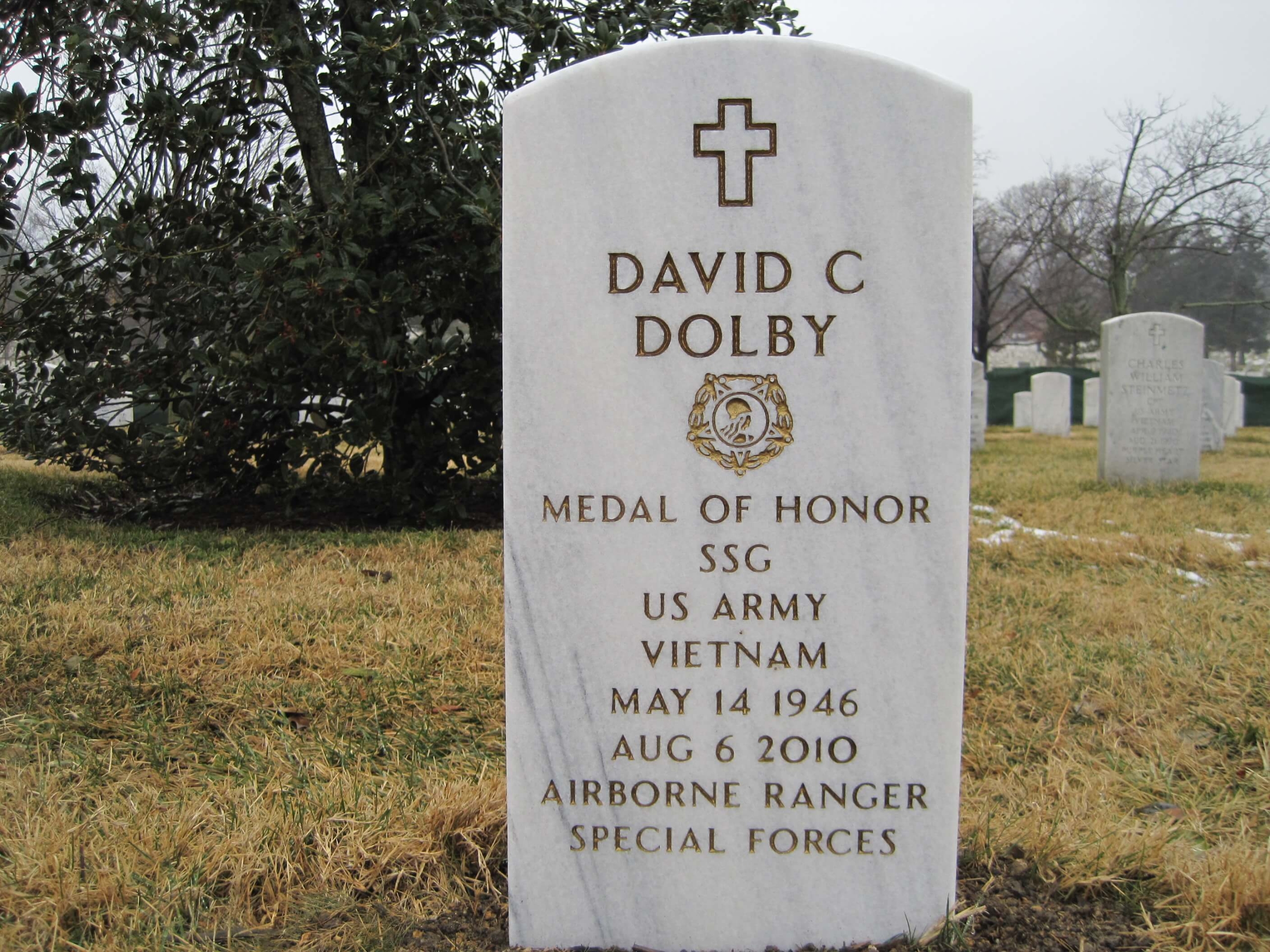
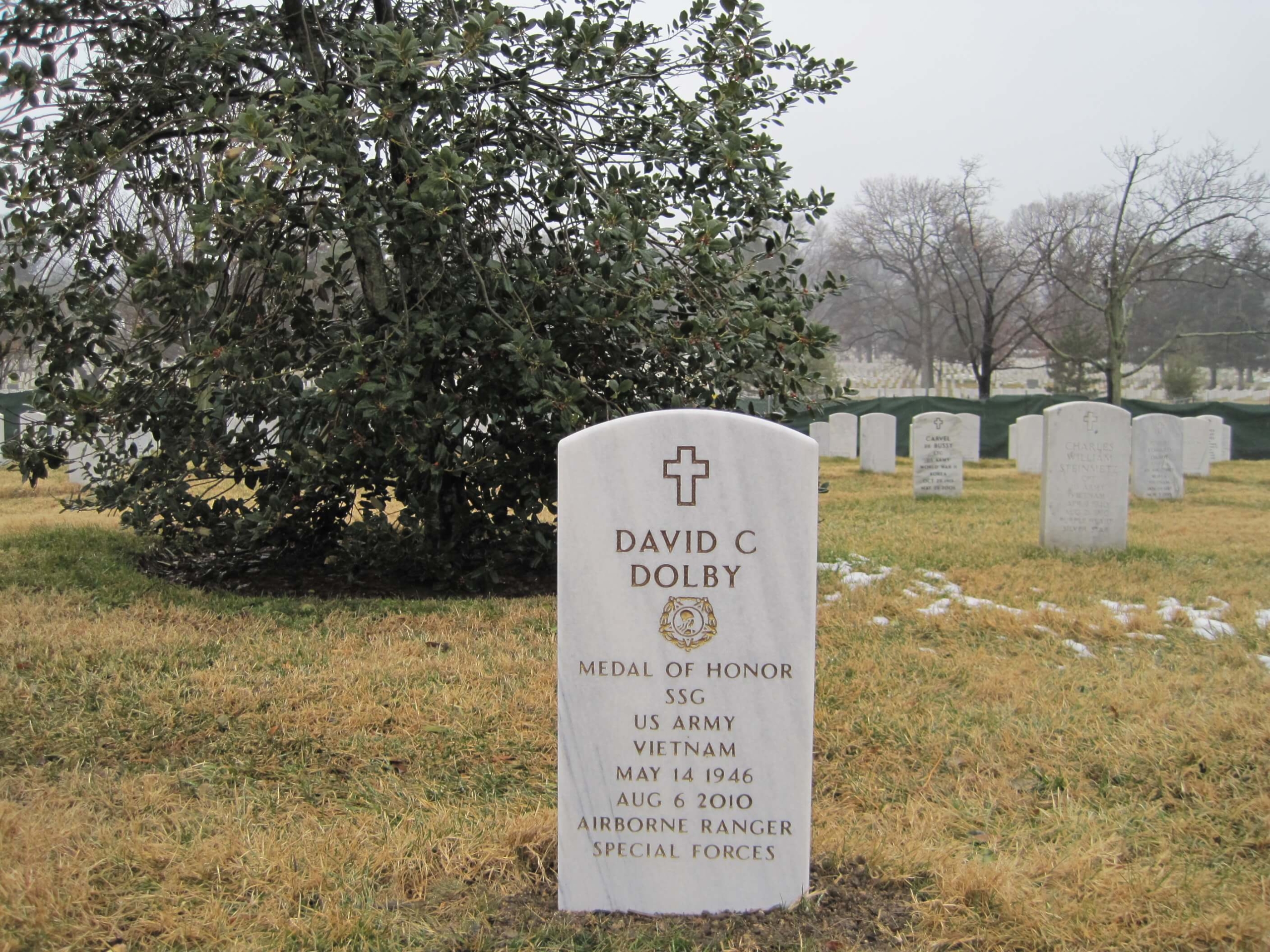
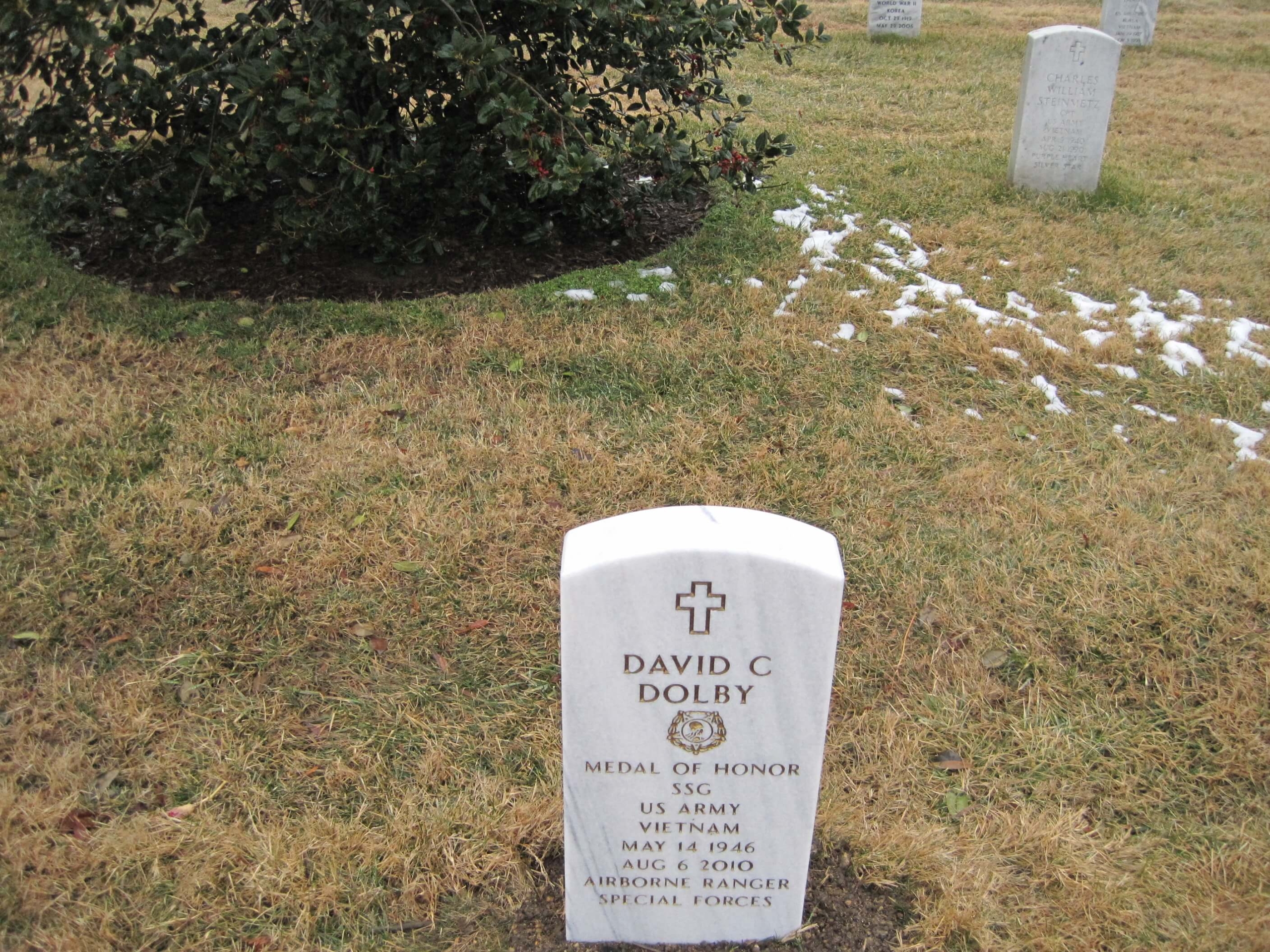
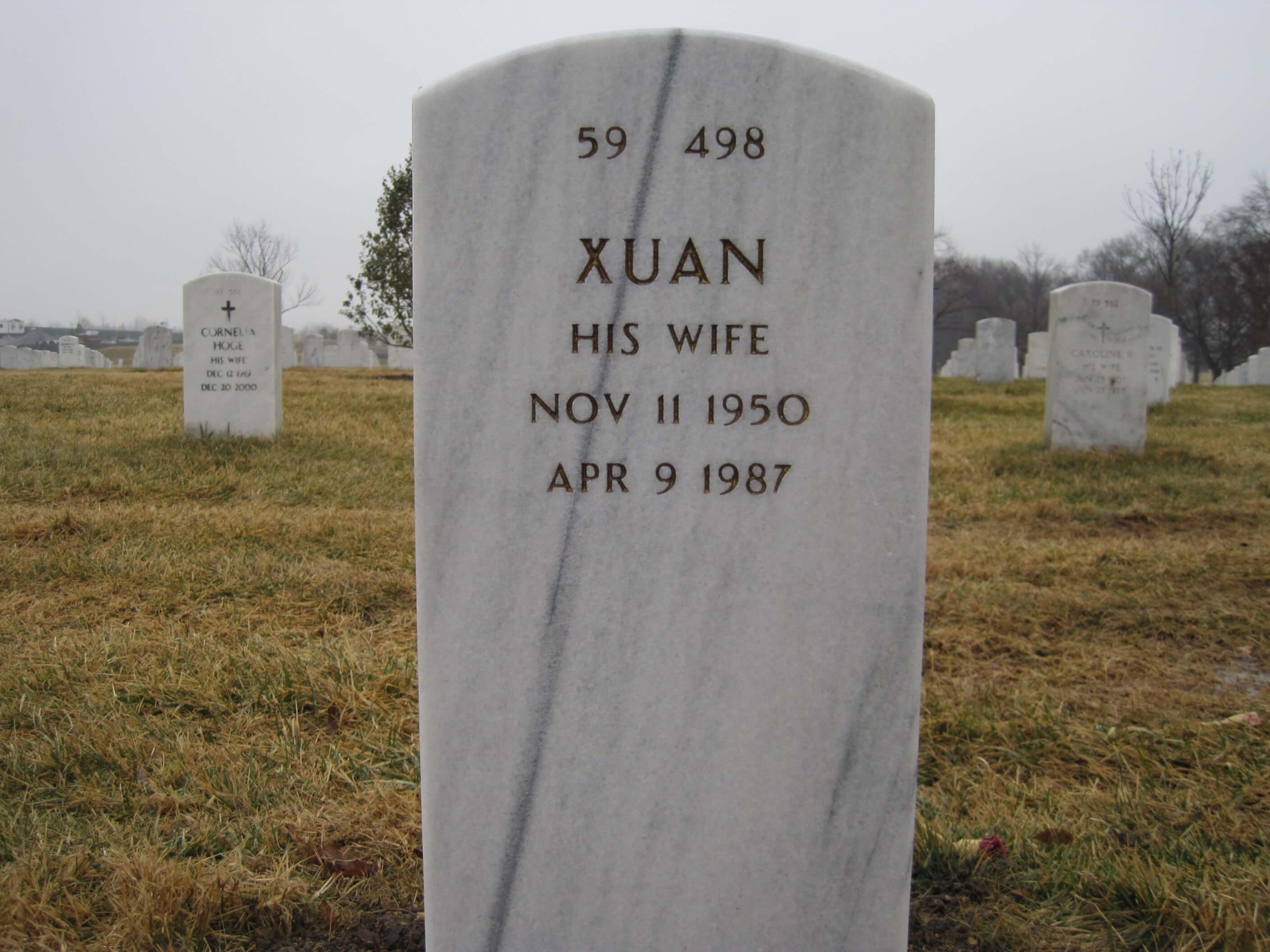
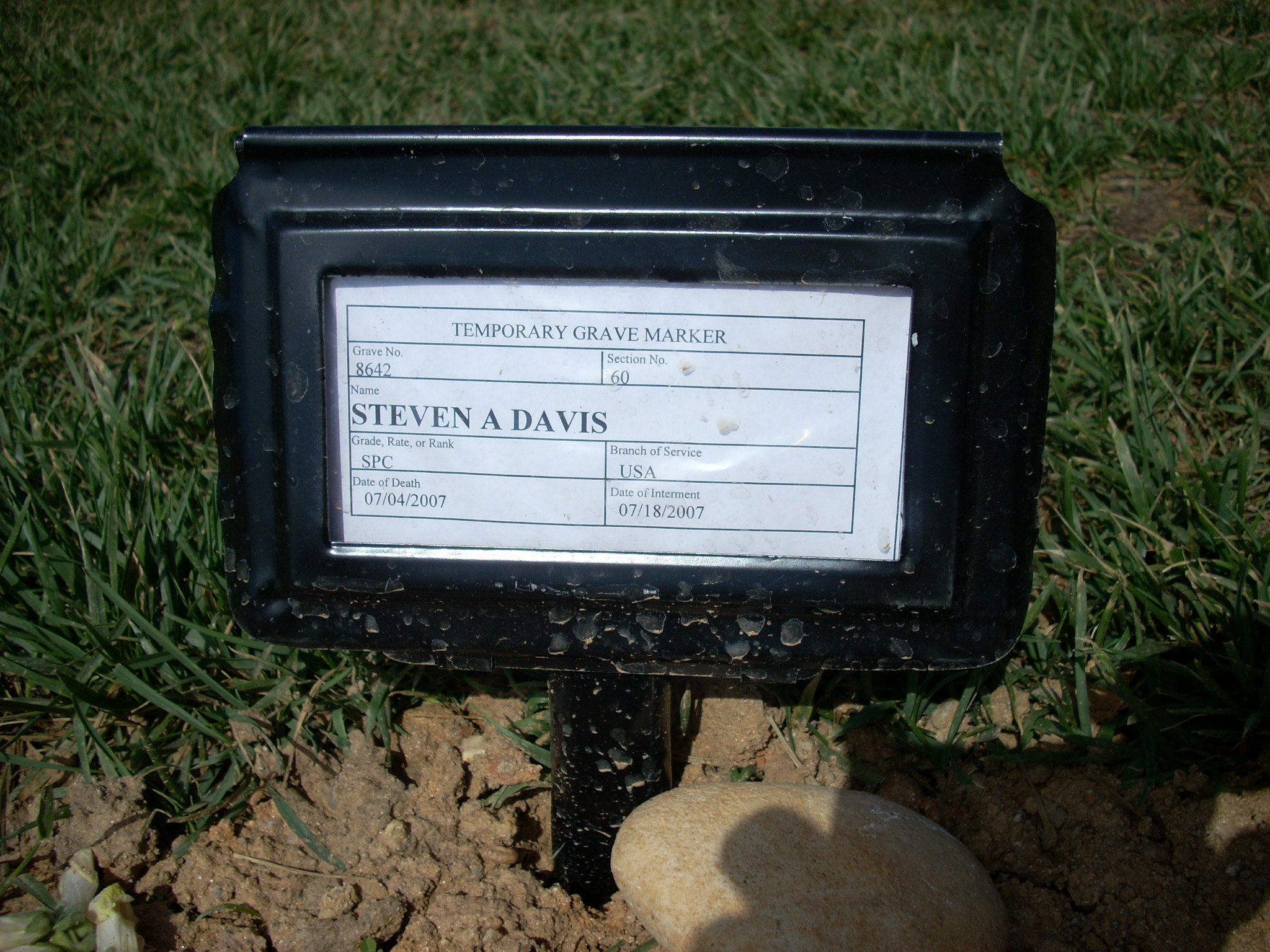
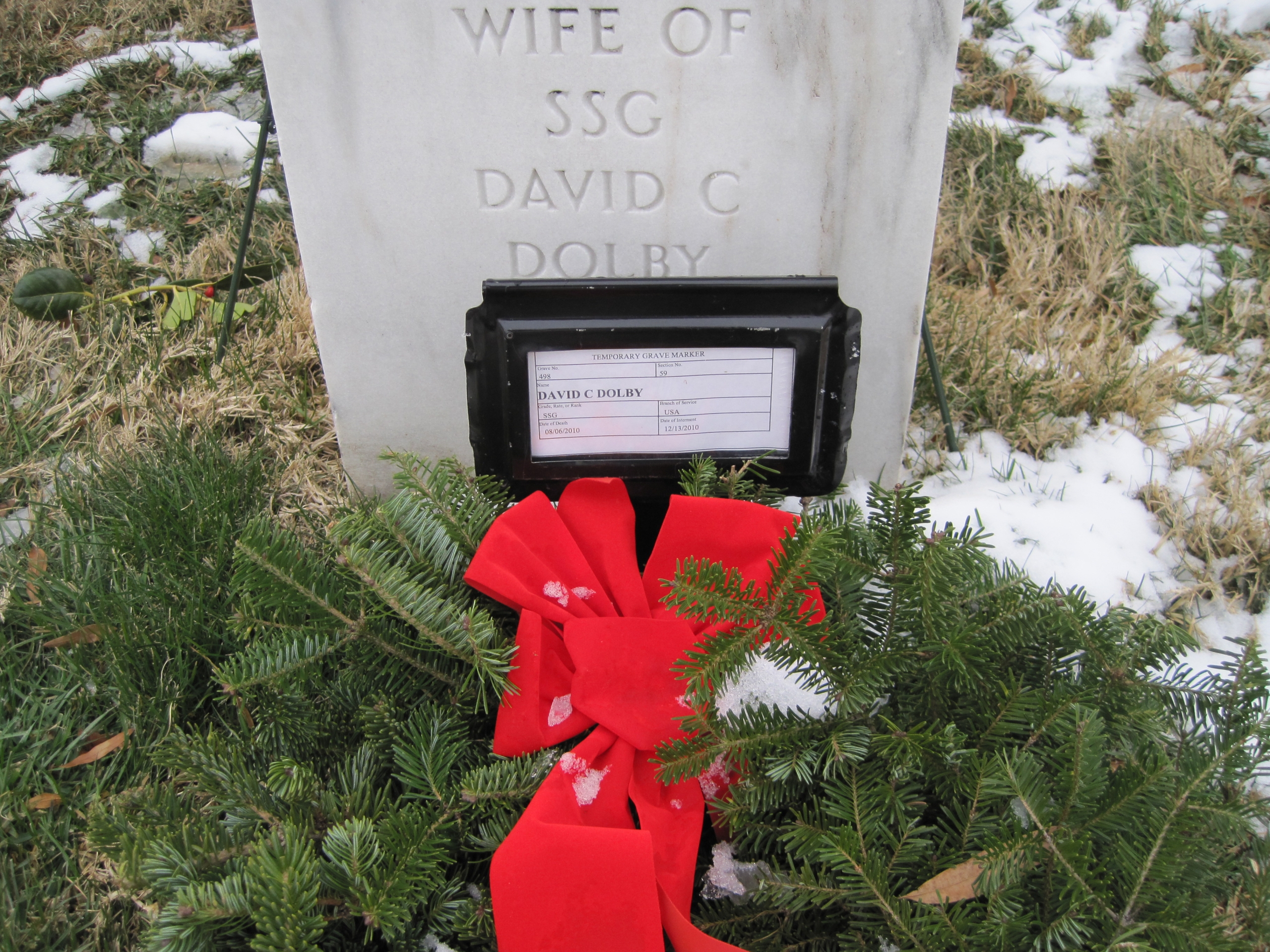
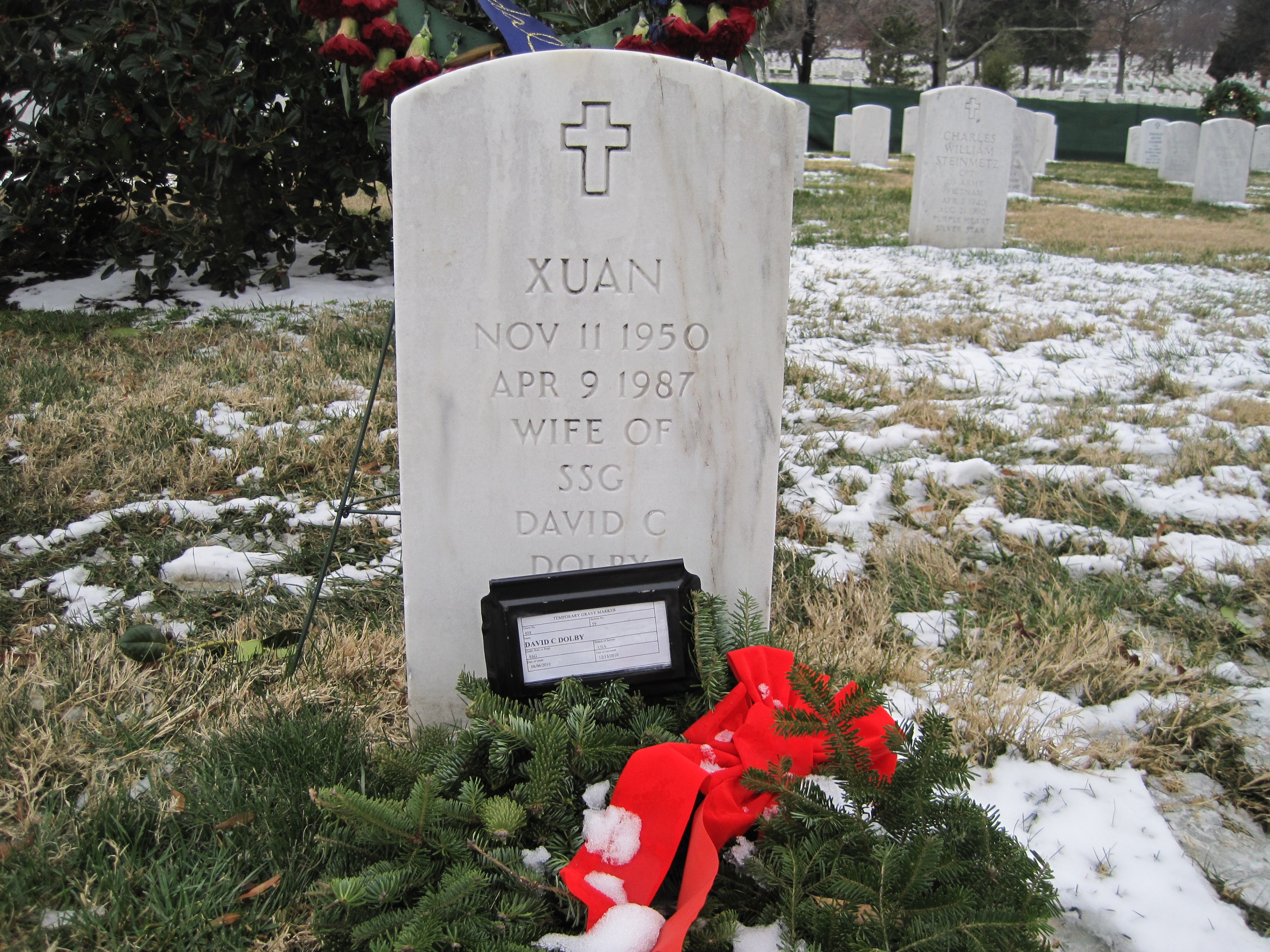
Michael Robert Patterson was born in Arlington and is the son of a former officer of the US Army. So it was no wonder that sooner or later his interests drew him to American history and especially to American military history. Many of his articles can be found on renowned portals like the New York Times, Washingtonpost or Wikipedia.
Reviewed by: Michael Howard

